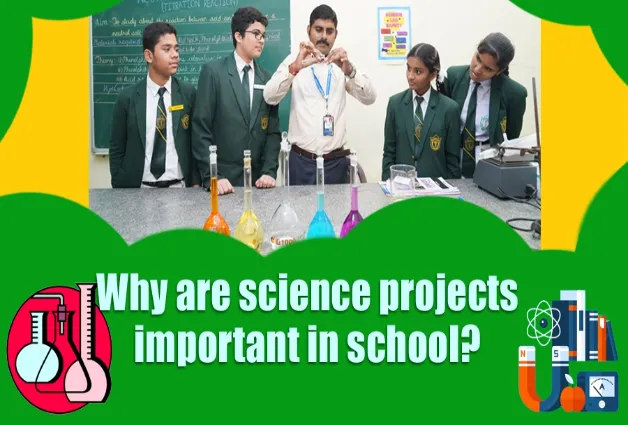Education must be oriented towards holistic development of children where learning is evaluated on the basis of how impeccably a student can implement and present the knowledge that he/she possesses. Learning combined with creativity enhances student’s knowledge and makes learning fun and easy.
In order to showcase the skills, students are encouraged to participate in exhibitions, projects, seminars, presentations, and competitions. The purpose of science fairs is to instill a scientific attitude in the students to make them understand the interdependence of technology, science and society. Science fairs provide a platform for the students and teachers to learn and get motivated from each other’s experiences and design and develop something unique and innovative. These activities also shift their focus from theoretical study to practical implementation by applying their ideas in creating a unique project. Once an idea gets transformed into a project, it is showcased in front of others and gets acknowledged. Participating in a science exhibition allows students to learn and work together in groups. This enhances the confidence of students and develops their social skills in enabling them to become a team player.
Importance of science projects and exhibitions in schools –
1. New innovation or new idea:
Science exhibition increases the reasoning capacity of students as they generate new ideas for their project. Then they decide the process to follow in order to complete the project and get the desired result. This broadens their imagination and creativity which makes them innovate by implementing their knowledge and learning.
2. Use of scientific methods
Students learn about scientific methods theoretically from an early stage. Science exhibitions help them showcase and implement those scientific methods in real-life projects. The experience of using scientific methods to create a science project encourages students to become a critical thinker. Practical learning is a very significant factor in success and growth of a student’s academic life.
3. Communication skills
When the project is displayed in a science exhibition, competing with many students, each group has to explain it to visitors which includes judges, teachers, parents and others. The better they understand the project and concepts, the more efficiently they can explain it to others. Every student wants to explain their project to judges or people in the best way possible. As a result, students have a chance to develop clear communication skills, showcasing their ideas succinctly which is a key trait to learn in life as they move forward in their careers. It helps them answer questions and queries and also helps develop a sense of preparedness.
4. Earn scholarship money
Science exhibitions are not only a unique experience but are also opportunities to earn scholarship money. If the project is unique and can compete in a local science fair or state science fair, then the students have a great chance to win prize money or scholarship money which can be used in their higher studies. Apart from prize money, students also get trophies and participation certificates which hold great value. For example, the DPS Warangal school participated in Think Start Up Youth Ideathon in 2022, and was chosen among 6000+ schools, and among the top 25 ideas to be presented in a panel of industry members and academicians




